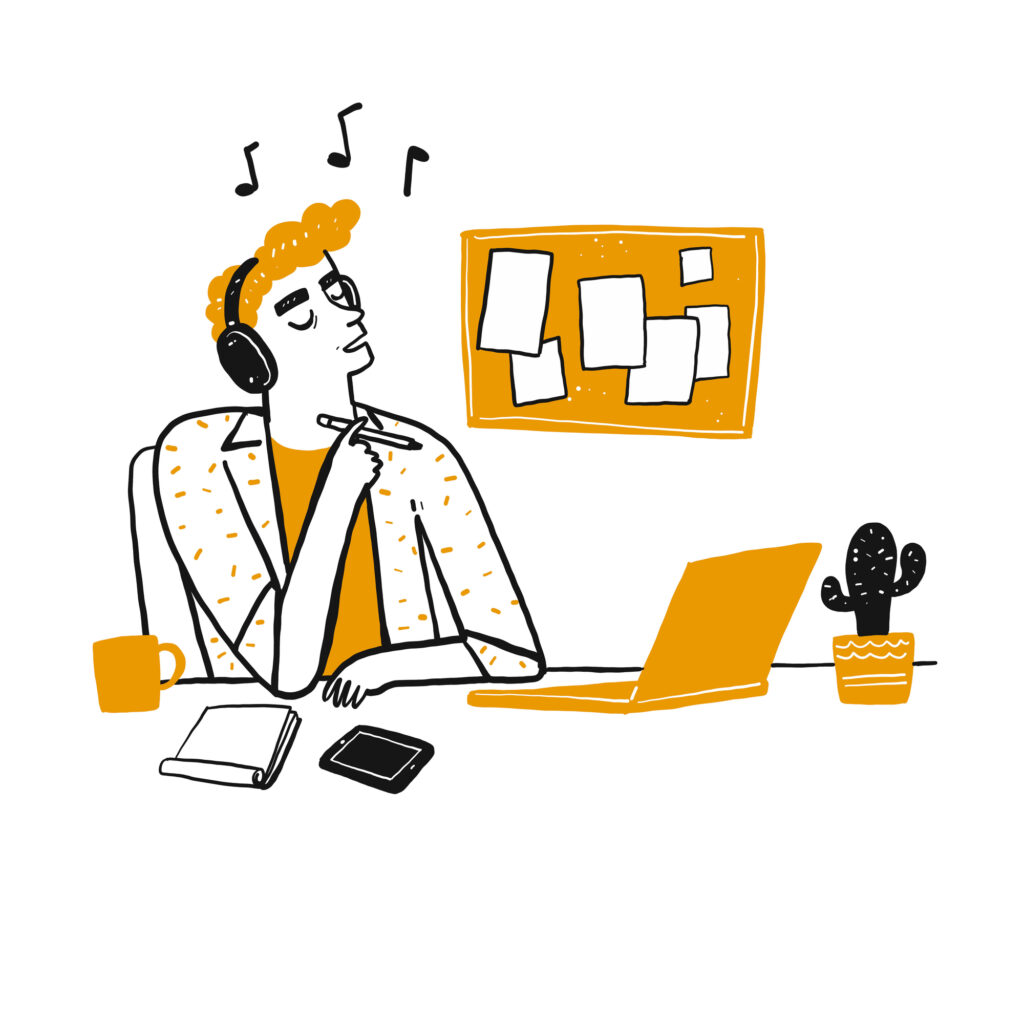 When placed on hold on the phone, music is often played until someone can answer. There’s music in many elevators (hence the term “elevator music”—which has come to be known as a derogatory term for easy listening tunes). During the holiday season, Christmas music is everywhere…in stores, restaurants, fitness centers, and in many offices.
When placed on hold on the phone, music is often played until someone can answer. There’s music in many elevators (hence the term “elevator music”—which has come to be known as a derogatory term for easy listening tunes). During the holiday season, Christmas music is everywhere…in stores, restaurants, fitness centers, and in many offices.
Throughout the year, the question for employers is whether to bring music into the workplace. What effect does music have on worker well-being and productivity? Do customers like hearing music? What legal problems can be triggered by having music in the workplace? The following is based on a blog I did many years ago.
Benefits of using music
Music can have a beneficial effect for employees in the workplace. A recent scholarly paper said: “listening to music during work activities could be a positive organizational practice.”
So, what are the positive benefits to employees of listening to music in the workplace? One source (that has links to surveys and studies) says:
- Music helps keep employees focused
- Music improves memory
- Music can reduce stress and anxiety
- Music can increase motivation
- Music can promote camaraderie
- Music improves employee performance
- Music makes people happier
What about your customers? If you have a retail store or restaurant, how does music fare with customers? According to a study in Sweden, customers stayed 42% longer in stores when music was being played. What’s more, if the music aligned with the brand, sales increased by 37%. Positive results were also seen for music in restaurants.
Disadvantages
There are some job functions that aren’t well served by some music. For example, songs with lyrics can interfere with employees learning new information.
And for some people music can be distracting or even annoying, depending on what’s being played. Diners may find it difficult to talk over loud background music.
If employers choose to have music in the workplace for the benefit of employees, be careful what is played. Songs can violate discrimination laws because they may contain lyrics that contain profanity or are sexist, racist, ethnically offensive, or disgustingly graphic. For example, sexually offensive lyrics may trigger a harassment suit against the employer. That’s what happened when employees—seven women and one man—claimed that the employer permitted “sexually graphic, violently misogynistic” music to be played throughout the warehouse and that this sexually derogatory music audible in the workplace created a hostile work environment in violation of their civil rights. A federal appellate court agreed with the workers. The court said that an employer’s “status as a purported ‘equal opportunity harasser’ (of both women and men) provides no escape hatch for liability.”
Crafting a music policy
If you decide to have music in your workplace, then figure out what works best for your situation. Is it ambient music? Classical pieces? Upbeat tunes? Should music be listened to privately? Some ideas to consider:
- Watch sound levels. Workers need to be able to hear other cues, such as a machine that isn’t working properly. Diners want to be able to converse.
- Change genres regularly (daily?). Offer something for everyone?
- Let employees listen to their music of choice with earbuds or headphones. But be cognizant of potential dangers if their private listening prevents them from hearing calls from other workers, alarms, etc.
- Limit music to certain areas of a business. This may be the break room. Music may be fine for diners but barred in a restaurant’s kitchen.
- Explain to employees the ramifications of objectionable music.
Final thoughts
“Music produces a kind of pleasure which human nature cannot do without.” – Confucius
Try using music in your workplace. Perhaps get employee feedback about what to play, sound levels, etc. If you find that it’s more of a negative than a positive, you can always turn it off.


